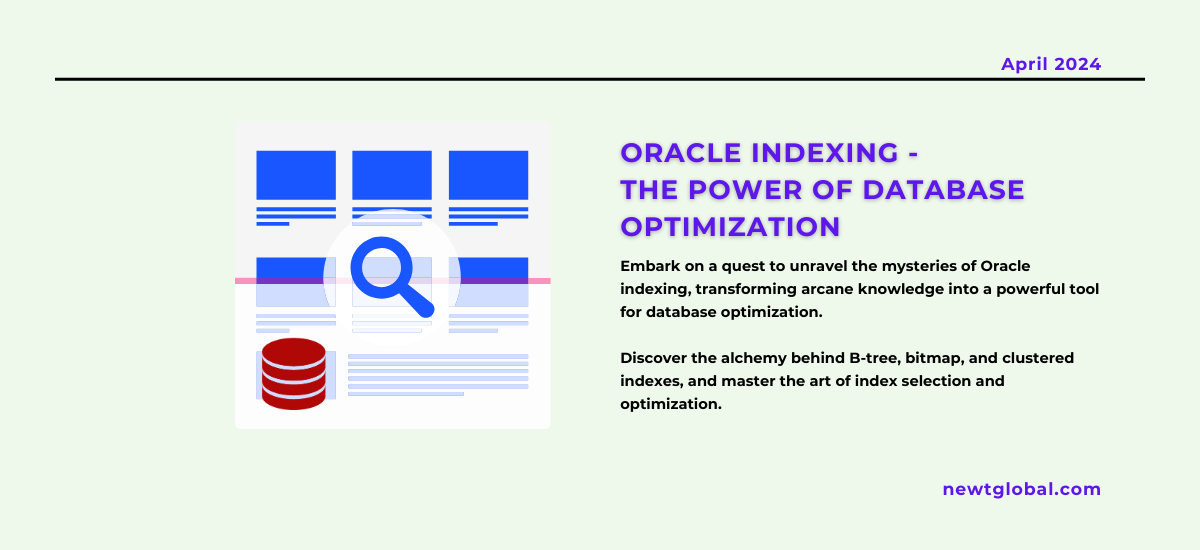
In the world of making databases work better, Oracle indexes are like special tools that help find information quickly. They’re really good at their job and can find things fast. But for many people who work with databases, understanding indexes can be tricky. Don’t worry! We’re going to explain how Oracle’s indexes work, making it easier for you to master this skill.
Understanding Oracle Indexes
Before we talk about making things better, let’s first understand what Oracle indexes are and how they help with databases. Oracle indexes aren’t just simple guides. They’re carefully made tools that speed up finding information and make searches faster.
Different Types of Indexes
There are different types of indexes in Oracle, each with its own special role:
-
- B-tree Indexes: These are like guides for finding things in databases with lots of unique items. They’re really good at navigating through these items quickly.
- Bitmap Indexes: These are efficient helpers for databases with columns that have a lot of the same information. They work well in these situations.
- Clustered Indexes: These are like legends that organize data in a way that makes it quicker to find.
- Function-based Indexes: These are like secret codes that help with finding calculated information quickly.
Making Oracle Indexes Better
To make Oracle indexes work even better, we follow these important rules:
-
- Understand Your Queries: See how your searches work and tailor your indexes to match their patterns.
- Pick the Right Indexes: Choose the best type of index for the kind of data you have. For example, use bitmap indexes for similar data and B-tree indexes for unique data.
- Combine Columns: Sometimes, combining different pieces of information can make searches even faster.
- Use the Oracle Index Advisor: This built-in tool helps you figure out the best way to set up your indexes.
- Balance Speed and Resources: Make sure your indexes make queries fast without using too much memory or space.
Maintaining Your Indexes:
-
- Maintain Your Indexes: Keep your indexes in good shape to keep them working well.
- Don’t Overdo It: Too many indexes can be a burden. Only create them when they’ll truly improve search speed.
- Use Oracle’s Tools: Take advantage of Oracle’s tools to get the most out of your indexes.
Conclusion
In the world of database improvement, Oracle indexing is like a bright light that helps us find information quickly and efficiently. By understanding how Oracle’s indexes work and following these tips, we can make our databases work even better. So, let’s embrace the challenge and make our databases shine!
Ready to unlock the full potential of your Oracle database with optimized indexing?
To harness the full potential of Oracle indexes and optimize your database performance, consider leveraging the expertise of Newt Global’s DMAP solution. Our world-class product facilitates seamless mass migration from Oracle Database to cloud-native PostgreSQL, offering a faster, better, and more cost-effective solution.
For more information and to take the next step towards enhancing your database efficiency, visit newtglobal.com or reach out to us at marketing@newtglobalcorp.com. Discover how Newt Global DMAP can revolutionize your database management journey today!
